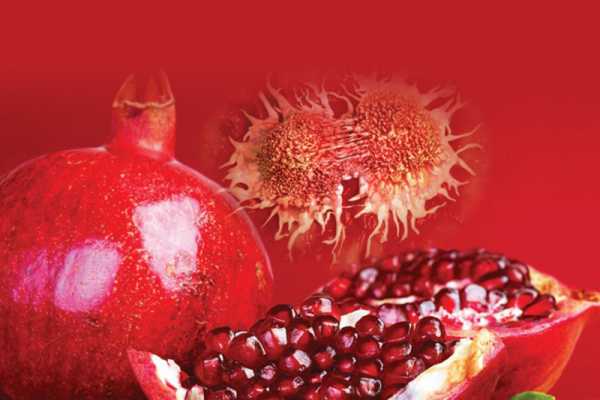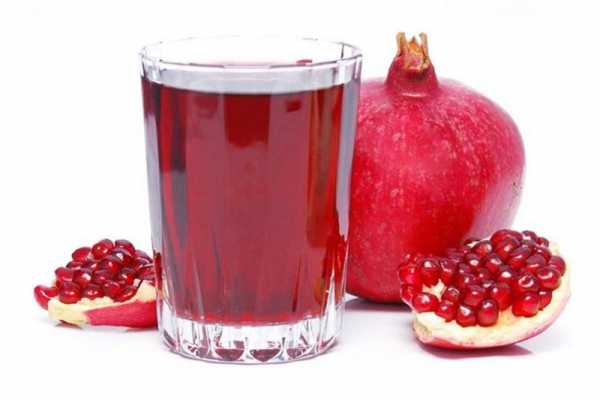
The future of cardiovascular disease prevention and treatment will not be found in your medicine cabinet, rather in your kitchen cupboard or in your back yard growing on a tree. Yes, there is a fruit that protects cardiovascular health by augmenting nitric oxide, which supports the functioning of endothelial cells that line the arterial walls. In plain English, this means it can unclog and clean your arteries.he journal Atherosclerosis distributes new science research that affirms pomegranate extricate counteracts and/or reverse essential pathology that is connected with cardiovascular mortality. Amassing of fat materials causes enormous thickening of the coronary arteries and known as atherosclerosis. Pomegranate enhances blood stream in the cardio system, likewise helps diminishing irritation and hypertension. This natural product helps in diminishing reducing the triglycerides and protects from heart attacks and many other cardio issues.
Pomegranate for your heart:
–

–
Reduced levels of oxidative stress
Reduced monocytie chemotactic protein-1, a chemical messenger (chemokine) associated with inflammatory processes within the arteries.
Reduced lipid accumulation in the heart muscle
Reduced macrophage infiltration in the heart muscle
Reduced levels of monocyte chemotactic protein-1 and fibrosis in the myocardium
Reduced cardiac enlargement
Reduced ECG abnormalities
Other health benefits of pomegranate:
–

–
Pomegranate juice regenerates liver after it has been damage.
It’s rich in vitamin C and in that way it can fight any kind of infections.
Due to the anti-inflammatory properties, it brings down the inflammation.
Reduction of bad LDL cholesterol levels.
According to the researches, it was proven that regular consumption of pomegranate is effective against prostate cancer, breast cancer, diabetes and lymphoma.
It’s great for your teeth due to the antibacterial compounds which can be helpful in preventing dental plaque.
Reduces body fat. A study conducted by the University of Edinburgh, showed that pomegranates can help reduce visceral fat – the most dangerous kind of fat.
Pediatric Research published a study which says that drinking pomegranate juice during pregnancy helps protect newborns’ brains during traumatic births.
Pomegranate protects DNA as a result of the phytonutrients and antioxidants that interact with your DNA to protect it.
* Decreases the plaque in veins.
* Prevents thickening of blood.
* Anticipation of cardio illness brought on by abnormal state substance of the cancer prevention- antioxidants.
–

–
How can something as benign and commonplace as a fruit extract reverse so many aspects of coronary artery disease, simultaneously, as evidenced by the study above? The answer may lie in the fact that our ancestors co-evolved with certain foods (fruits in particular) for so long that a lack of adequate quantities of these foods may directly result in deteriorating organ function. Vitamin C deficiency is a fundamental cause of cardiovascular disease, owing to the fact that our hominid primate ancestors once had year-round access to fruits, and as a result lost the ability to synthesize it.
Pomegranate’s value in cardiovascular disease is quite broad, as evidenced by the following experimentally confirmed properties:
Anti-inflammatory: Like many chronic degenerative diseases, inflammation plays a significant role in cardiovascular disease pathogenesis. There are five studies on GreenMedInfo.com indicating pomegranate’s anti-inflammatory properties.
Blood-Pressure Lowering: Pomegranate juice has natural angiotensin converting enzyme inhibiting properties, and is a nitric oxide enhancer, two well-known pathways for reducing blood pressure. Finally, pomegranate extract rich in punicalagin has been found reduce the adverse effects of perturbed stress on arterial segments exposed to disturbed flow.
Anti-Infective: Plaque build-up in the arteries often involves secondary viral and bacterial infection, including hepatitis C and Chlamydia pneumoniae. Pomegranate has a broad range of anti-bacterial and anti-viral properties.
Antioxidant: One of the ways in which blood lipids become heart disease-promoting (atherogenic) is through oxidation. LDL, for instance, may be technically ‘elevated’ but harmless as long as it does not readily oxidize. Pomegranate has been found to reduce the oxidative stress in the blood, as measured by serum paraoxonase levels. One study in mice found this decrease in oxidative stress was associated with 44% reduction in the size of atherosclerotic lesions.
How to select?
Pick it up. A ripe pomegranate should feel heavy for its size; an indication that the seeds are full and juicy. Look for an angular shape and firm skin. Good pomegranate has rich colour, and has no cuts or blemishes.
How to store?
It is recommended to store pomegranate at cool and dry place for up to one month. It can last for about two months if kept refrigerated.
How to prepare?
First of all, slice off the top. Than score the skin in quarters and open it up. After that, put each quarter underwater and use your fingers to ream the seeds from the inside. The seeds sink, and the white membrane floats. Pour off the membranes so the seeds remain. You can either eat them raw or make a fresh juice using a blender. There is no need to add sugar as this fruit is already sweet. Besides eating the seeds raw, you can also use them as garnishes for salads and desserts.